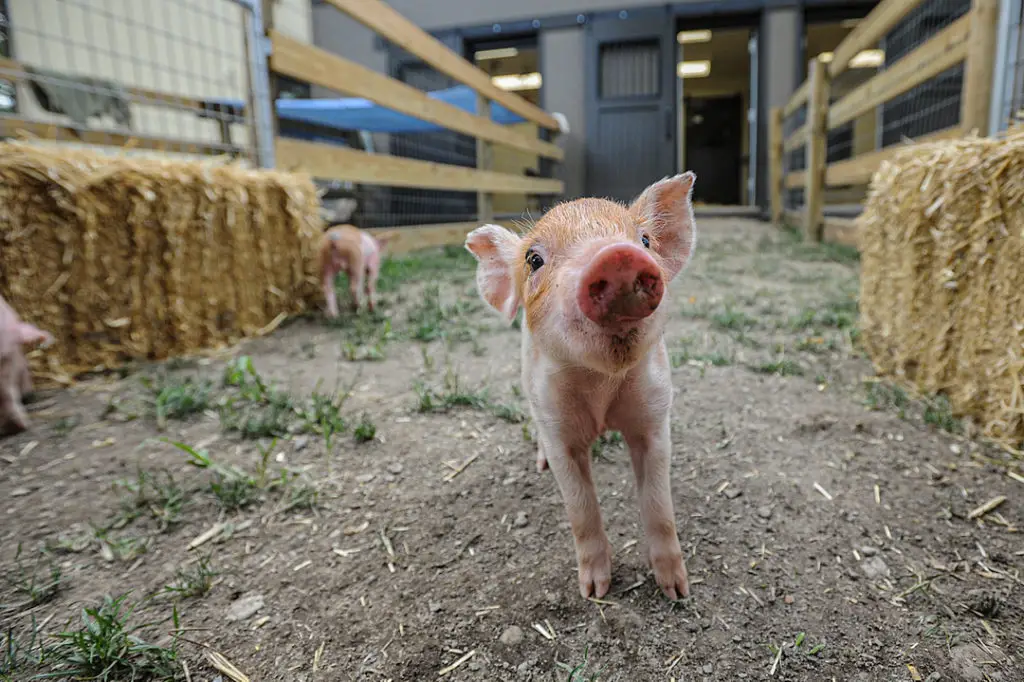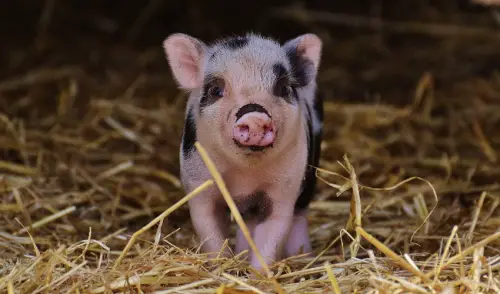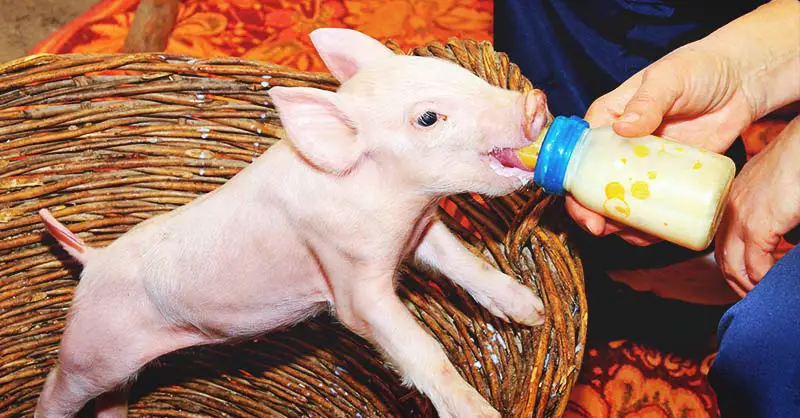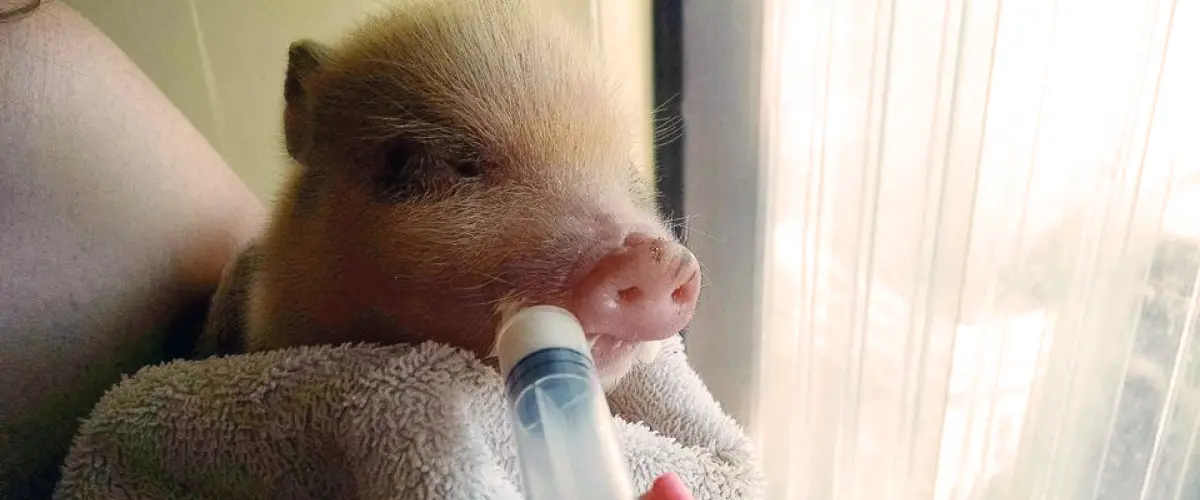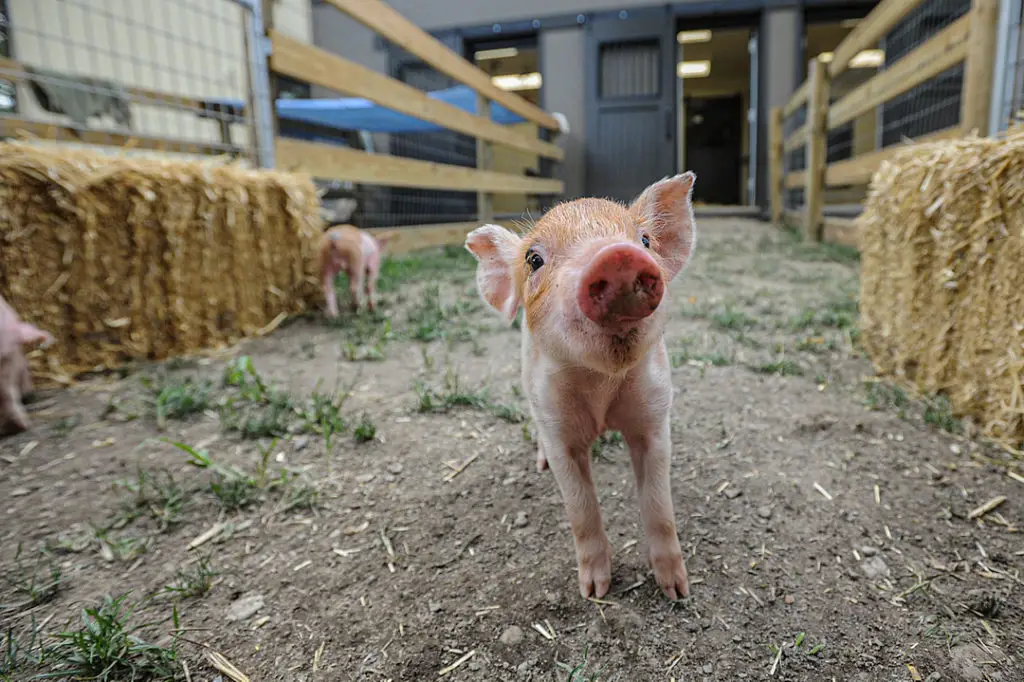So you’ve decided to embark on the adorable journey of caring for a baby pig. Whether you’re a pig enthusiast or simply seeking a unique and lovable pet, this article will provide you with essential guidance to ensure your little oinker thrives in your care. From feeding and hygiene to exercise and socialization, we’ve got you covered on all aspects of taking care of a baby pig. Get ready to dive into the world of these delightful creatures and become the best pig parent you can be!
Choosing a Baby Pig
When choosing a baby pig as a pet, it’s important to consider your space and zoning regulations. Pigs require ample room to roam and root, so make sure you have enough outdoor space or access to a suitable pig-friendly environment. Additionally, check your local zoning regulations to ensure that it is legal to own a pig as a pet in your area.
Researching different breeds and their characteristics is essential to finding the right baby pig for you. Different breeds have distinct temperaments, sizes, and care requirements, so it’s important to choose a breed that aligns with your preferences and lifestyle. Some popular breeds for pets include the Pot-bellied pig, Juliana pig, and Kune Kune pig. Take the time to understand the specific needs of the breed you’re interested in to ensure a successful match.
Identifying a reputable breeder or rescue organization is crucial when bringing a baby pig into your home. Ensure that the individual or organization has a good reputation, practices proper care for their pigs, and prioritizes the overall well-being of the animals. A trustworthy breeder or rescue organization will provide you with a healthy and well-socialized baby pig.
Preparing for the Arrival
Creating a safe and comfortable living space for your baby pig is essential to their well-being. Pigs are curious animals and can be prone to rooting or chewing, so make sure your space is pig-proofed. Secure any potential hazards, such as electrical cords or toxic plants, and provide a sturdy and spacious enclosure or pen for your pig to roam.
Acquiring necessary supplies and equipment beforehand will ensure a smooth transition for your baby pig. Some essential items include a pig-sized bed or shelter, food and water bowls, appropriate bedding material, toys for enrichment, and a secure fencing system. It’s also a good idea to invest in a pig harness or halter for safe outdoor excursions.
Preparing a feeding schedule and plan is crucial for your pig’s health and development. Consult with a veterinarian or pig nutritionist to determine the appropriate type and amount of pig feed for your baby pig’s age and breed. Pigs have specific dietary needs, so it’s important to provide them with a balanced and nutritious diet. Consider feeding smaller, more frequent meals to avoid overfeeding or wasting food.
Finding a veterinarian specializing in exotic animals is essential for your pig’s health care. Pigs require specialized veterinary care, so it’s important to establish a relationship with a professional who has experience and knowledge in pig health. Regular veterinary check-ups and vaccinations are vital for maintaining your pig’s overall well-being and preventing potential health issues.
Handling and Socializing
Gentle handling techniques are crucial for building trust and bonding with your baby pig. Pigs are intelligent animals, but they can be sensitive to fast movements or rough handling. Approach your pig calmly and speak to them softly to build a positive association. Use slow and gentle motions when interacting with your pig and gradually introduce them to being touched or picked up.
Introducing your pig to other animals and people should be done gradually and under controlled circumstances. Pigs are social animals, so it’s important to provide them with opportunities for positive socialization. Supervised interactions with other well-behaved animals and proper introductions to friends and family members will help your pig develop social skills and prevent aggressive or fearful behavior.
Providing mental stimulation and enrichment is essential for the well-being of your baby pig. Pigs are intelligent and inquisitive animals, so it’s important to keep them mentally engaged. Offer a variety of toys, puzzles, and interactive games to keep their minds stimulated. Additionally, provide them with opportunities for exploration and new experiences, such as supervised outings or supervised rooting in a safe outdoor area.
Feeding and Nutrition
Choosing the right type of pig feed is crucial for your baby pig’s health and development. Consult with a veterinarian or pig nutritionist to determine the appropriate type of feed for your pig’s age, breed, and dietary needs. Pelleted or formulated pig feeds are generally recommended, as they provide a balanced and complete diet. Avoid feeding your pig human food or excessive treats, as this can lead to obesity and health issues.
Establishing and following a feeding schedule is important to maintain your pig’s weight and overall health. Pigs thrive on routine, so try to feed them at the same times each day. This will also help prevent overfeeding or underfeeding. Measure the appropriate amount of feed according to your pig’s age and weight, and adjust as necessary to maintain a healthy body condition.
Providing fresh water at all times is essential for your pig’s well-being. Pigs need access to clean and fresh water to stay hydrated and regulate their body temperature. Ensure that the water is easily accessible and changed regularly to prevent contamination or stagnation.
Introduce solid foods gradually to your baby pig’s diet. Start with small amounts of soft and easily digestible foods, such as mashed fruits and vegetables. As your pig grows, you can gradually introduce a wider variety of solid foods, such as pellets or chopped vegetables. Monitor their response to new foods and make adjustments as necessary.
Monitoring your pig’s weight and overall health is important to spot any potential issues early on. Regularly weigh your pig and keep track of their growth to ensure they are developing at a healthy rate. Look out for signs of weight loss, loss of appetite, or changes in behavior, as these may indicate an underlying health problem. If you notice any concerns, consult with your veterinarian as soon as possible.
Healthcare and Veterinary Care
Scheduling regular check-ups with a veterinarian specializing in pigs is crucial for your pig’s health care. Pigs require specific vaccinations and health monitoring, so establishing a routine veterinary schedule is essential. Regular check-ups will ensure that any potential health issues are detected early and appropriate treatments are administered.
Vaccinations and parasite prevention are integral to your pig’s well-being. Consult with your veterinarian to determine the appropriate vaccination schedule for your pig. Vaccinations will protect your pig against common pig diseases and prevent potential health issues. Additionally, practice regular parasite prevention, such as deworming, to keep your pig free from internal and external parasites.
Recognizing signs of illness or distress is important for prompt veterinary intervention. Pigs are good at hiding signs of illness, so it’s important to be vigilant and monitor their behavior and physical condition. Look out for changes in appetite, energy levels, or behavior, as well as any visible signs of discomfort or distress. If you notice any concerning symptoms, contact your veterinarian immediately.
Administering basic first aid and emergency care is crucial for your pig’s well-being. Keep a first aid kit specifically designed for pigs on hand, including items such as wound dressings, antiseptics, and syringes. Familiarize yourself with basic first aid techniques for pigs and know when to seek immediate veterinary attention.
Housing and Environment
Providing a safe and secure shelter is essential for your pig’s well-being. Pigs need a living space that protects them from extreme weather conditions, such as excessive heat or cold. Ensure that their shelter is sturdy, spacious, and well-insulated. Provide bedding material, such as straw or blankets, for comfort and warmth.
Maintaining cleanliness and hygiene in your pig’s living space is important to prevent the spread of diseases and parasites. Regularly clean and disinfect the enclosure or pen, and remove any waste or soiled bedding. This will help keep your pig’s environment clean and minimize the risk of health issues.
Maintaining optimal temperature and ventilation is crucial for the comfort and health of your pig. Pigs are susceptible to heatstroke, so ensure that their living space is well-ventilated and equipped with appropriate cooling mechanisms during hot weather. In colder climates, provide ample insulation and heating options to protect your pig from extreme cold temperatures.
Grooming and Hygiene
Regular coat brushing is important to keep your pig’s skin and coat in good condition. Use a gentle brush or grooming mitt to remove loose hair and prevent matting. Regular brushing will also help stimulate blood circulation and promote a healthy and shiny coat. Take this opportunity to bond with your pig and make grooming a positive experience.
Nail trimming is essential for your pig’s comfort and mobility. Pigs’ nails can grow long and become sharp, causing discomfort and potential injuries. Use a specialized nail trimmer or grinder to carefully trim your pig’s nails. Take care not to cut the quick, which is a sensitive area with blood vessels. If you’re unsure about nail trimming, consult with a veterinarian or professional groomer.
Ear and eye cleaning is essential to maintain your pig’s hygiene and prevent infections. Use a clean and damp cloth or cotton pad to gently wipe the ears and eyes. Avoid using q-tips or harsh cleaning agents, as these can cause damage. If you notice any discharge, redness, or swelling, consult with your veterinarian for appropriate care.
Bathing and skin care should be done as needed. Pigs generally do not require frequent baths, as they have natural oils in their skin that help keep it healthy. However, if your pig gets dirty or develops skin issues, a gentle bath with pig-approved shampoo can be beneficial. Use lukewarm water and be gentle when handling your pig during bath time. After bathing, thoroughly dry your pig to prevent chilling.
Exercise and Enrichment Activities
Encouraging physical activity through play is important for your pig’s physical and mental well-being. Pigs enjoy interactive toys, such as puzzle toys, balls, or treat-dispensing toys. Provide ample opportunities for your pig to engage in physical play, such as running, chasing, and exploratory behavior. Join in the fun and interact with your pig to build a bond and provide additional mental stimulation.
Creating an enriching environment is essential for your pig’s overall well-being. Offer a variety of toys, tunnels, and hiding places to keep your pig mentally engaged. Consider creating an outdoor area where your pig can root and explore in a safe and supervised environment. Rotate toys and provide new experiences to prevent boredom and encourage mental stimulation.
Teaching basic commands and tricks can be a fun and rewarding experience for both you and your pig. Pigs are intelligent animals and enjoy learning new things. Start with basic commands, such as sit or come, and gradually introduce more complex tricks or behaviors. Use positive reinforcement techniques, such as treats or praise, to encourage and reward your pig’s progress.
Behavioral Training
Establishing a routine and setting boundaries is important for your pig’s behavior and overall happiness. Pigs thrive on routine and consistency, so establish a daily schedule for feeding, exercise, and interaction. Set clear boundaries and enforce them consistently to prevent unwanted behaviors, such as rooting in inappropriate areas or aggression.
Using positive reinforcement techniques is crucial for effective training and behavior modification in pigs. Pigs respond well to rewards and praise, so focus on rewarding desired behaviors rather than punishing undesirable ones. Use treats, verbal praise, or petting to reinforce positive behaviors and redirect or ignore unwanted behaviors. Consistency and patience are key to successful behavioral training.
Addressing common behavioral issues, such as aggression or destructive behavior, requires patience and understanding. Pigs can display certain behaviors as a result of fear, lack of socialization, or underlying health issues. Consult with a professional animal behaviorist or trainer for guidance on managing and modifying unwanted behaviors. With proper training and consistent reinforcement, most behavioral issues can be resolved.
Spaying or Neutering
Consulting with a veterinarian about spaying or neutering your pig is an important consideration for their long-term health and behavior. Spaying or neutering can help prevent reproductive issues, such as unwanted pregnancies or hormonal behaviors. Additionally, it can reduce the risk of certain health conditions, such as uterine infections or testicular cancer. Consult with your veterinarian to determine the appropriate time and procedure for spaying or neutering your pig.
Benefits of spaying or neutering your pig include reduced aggression, elimination of heat cycles, and potentially longer lifespan. Spayed or neutered pigs are often easier to handle and live with, as they are less prone to hormonal behaviors. Additionally, preventing unwanted pregnancies contributes to responsible pet ownership and prevents overpopulation.
Recovery and post-operative care following spaying or neutering are crucial for your pig’s well-being. Your veterinarian will provide specific instructions regarding pain management, activity restrictions, and wound care. Follow these instructions carefully to ensure a smooth recovery for your pig. Monitor the incision site for any signs of infection or complications, and contact your veterinarian if you have any concerns.
Taking care of a baby pig requires time, commitment, and knowledge. By following these guidelines and seeking professional advice when needed, you can provide a happy and healthy life for your pig. Remember to approach pig ownership with love and patience, as these intelligent and sociable animals can bring joy and companionship to your home.
